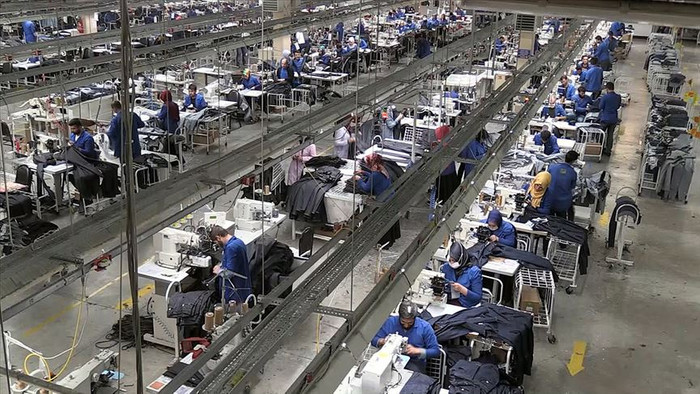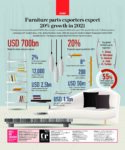By YENER KARADENIZ
WITH ITS REPUTATION for fast production and delivery of garments, Turkey is on its way to becoming once again the production base for large brands and purchasing groups. With the COVID -19 pandemic ongoing, U.S.-based global apparel brands like Ralph Lauren, Banana Republic, Tommy Hilfiger and Calvin Klein are shifting a significant part of their operations to Turkey, noted industry representatives. Along with big brands, large purchasing groups and e-commerce actors like Zalando, Asos and Boohoo are also leaning toward Turkey and are working to establish procurement offices in the country.
PHYSICAL PRESENCE IN A DIGITAL AGE
Boohoo, the fast-growing UK-based fashion retailer, has decided to open its own procurement office in Turkey. Spanish Inditex, the world’s largest fashion group, is planning to increase its purchases from Turkey from 20% to 25%. It was noted that many fashion retailers that closed their offices and ceased purchases in Turkey in previous years are reopening those offices.
With the pandemic affecting markets globally, stores, like borders, were closed as part of the health measures. Meanwhile, hundreds of brands have struggled with high inventory costs and difficulties taking new orders. The persistence of these problems led brands and retailers to start near-shoring. The supply chain of the apparel sector has changed, similar to other sectors.
FIRST CHOICE FOR NEAR̞SHORING
Turkey, with its position as the 6th largest supplier of apparel in the world, has been the primary address of clothing retailers during the pandemic. Seref Fayat, Chairman of the Textile and Apparel Sector at The Union of Chambers and Commodity Exchanges of Turkey (TOBB), has noted that the apparel sector had a strong start to 2021, raising expectations for the rest of the year. “We are receiving new information from retailers stating that Turkey will be their first stop when the market reopens,” said Fayat. The retailers currently sourcing their products from Turkey are also planning to increase their purchases significantly, he added. The export numbers already reflect these developments. Despite the ongoing closures in major markets, exports increased by 3% compared to last year, reaching USD 1.5 bn.
The pandemic has significantly increased online activity. “There are demands from e-commerce portals. Many e-commerce retailers have been sourcing their short-term collections from Turkey and we are hearing news that it will further increase,” said Fayat. The tension between the U.S. and China has also influenced these developments. “Turkey stands out with its value-added garments. In 2021, many high value-added U.S. retailers and e-commerce portals will choose Turkey,” said Fayat. He also underlined that Turkey provides raw materials to markets in which many large retailers trade.
BUSINESS NETWORK TO BOOST US-TURKEY TRADE
Ugur Terzioglu, the Honorary Chairman of the American Turkish Business Development Council (ATBD), underlined that U.S. retailers are reopening their offices in Turkey and that Turkey’s exports to the U.S. will reach more significant numbers. Terzioglu explained that Turkey’s higher exports to the U.S. during the pandemic are a product of the U.S. minimizing trade with China. “Since the U.S. has lowered trade with China, Turkey has filled the gap,” said Terzioglu. Terzioglu also added that they will be announcing the details of their “Business Network” project that aims to boost trade between the U.S. and Turkey.
PANDEMIC HAS ACCELERATED ARRIVAL OF BRANDS
Ahmet Oksuz, Chairman of the Istanbul Textile and Raw Materials Exporters Association (ITHIB), has stated that Turkey’s role in meeting the supply demands of purchasing groups has become more important, in line with the expectations and that the effect is especially significant for the U.S.-based brands. “We see that many brands are leaning toward Turkey. Despite the contraction in major markets, our market share has been increasing. Business is doing well,” said Oksuz. He added that, with the pandemic sustainability is on the rise again and that there is higher demand for organic cotton, which has significantly increased Turkey’s share in the supply of garments. Oksuz signified the importance of improving sustainable production. “The faster we improve, the better,” he said.
Recep Burak Serttas, Chairman of the Textile and Apparel Exporters Association of the Aegean Region, stated that Izmir and its environs were the primary supplier of garments for Inditex, H&M and C&A. Serttas added that brands are increasingly shifting their purchases to Turkey. Serttas commented on the arrival of brands like Ralph Lauren and Banana Republic. “We were expecting their arrival, but the pandemic has accelerated the process,” said Serttas, underlining the importance of higher demand for sustainable garments in increasing the demand for Turkish-made garments. “We have many manufacturers in Turkey that can meet this demand. We need to highlight this aspect of our sector,” Serttas stated.










